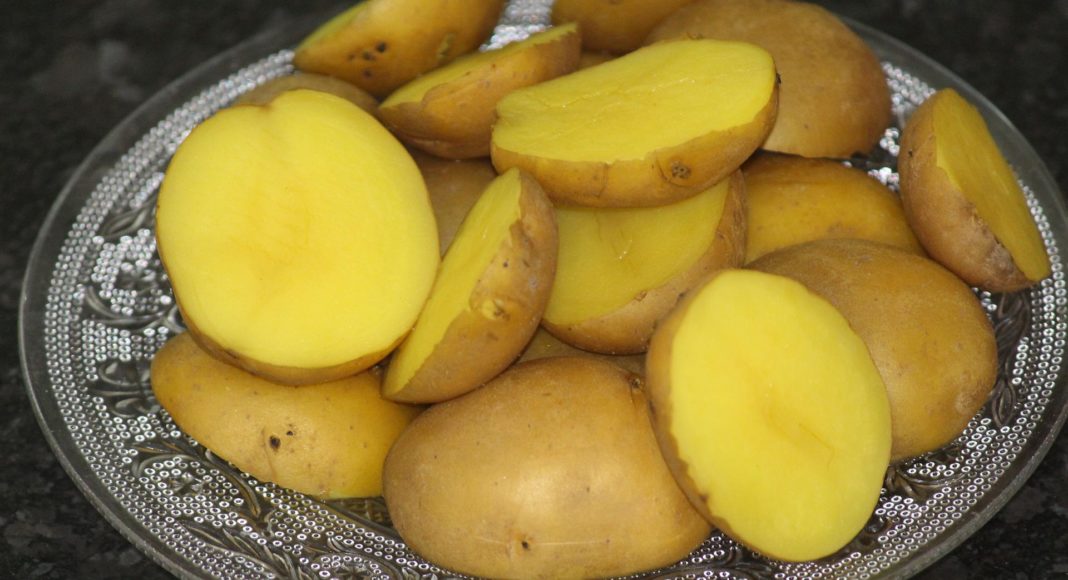Scientists at Texas A&M used CRISPR/Cas9 technology to develop potato cultivars with modified starch levels in two studies, a May 25 news release said.
In the first study, a potato line containing four copies of gfp, a jellyfish gene that allows a fluorescence-based visualization of the gene’s activity, was targeted for mutation using the CRISPR/Cas9 system.
“Loss of the characteristic green fluorescence and sequencing of the gfp gene following CRISPR treatment indicated that it is possible to disrupt all four copies of the gfp gene, thus confirming that it should be possible to mutate all four alleles of a native gene in the tetraploid potato,” Keerti Rathore, AgriLife Research plant biotechnologist at Texas A&M, said in the release.
The release noted that among the various potato cultivars evaluated in the first study, the Yukon Gold strain regenerated the best, and so it was used for the second study. In this study, the native gene gbss in the tetraploid Yukon Gold strain was targeted to effectively eliminate amylose. The result was a potato with starch rich in amylopectin and low in amylose.
That tuber starch, T2-7, could find industrial applications in the paper and textile sectors as adhesives/binders, bioplastics, and ethanol industries. Potatoes with amylopectin as the exclusive form of starch should also yield more ethanol for industrial use or to create alcoholic beverages, the release said.
The T2-7 strain has been self-pollinated and crossed with the Yukon Gold strain donor and other potato clones to eliminate the transgenic elements for the next steps in these studies.
The two articles on the studies were published in the International Journal of Molecular Sciences and the Plant Cell, Tissue and Organ Culture journals.
Related Articles
Amylose-free Starch Potato Successfully Created with CRISPR
Royal Avebe, Solynta Team Up on Hybrid Starch Potato Breeding











